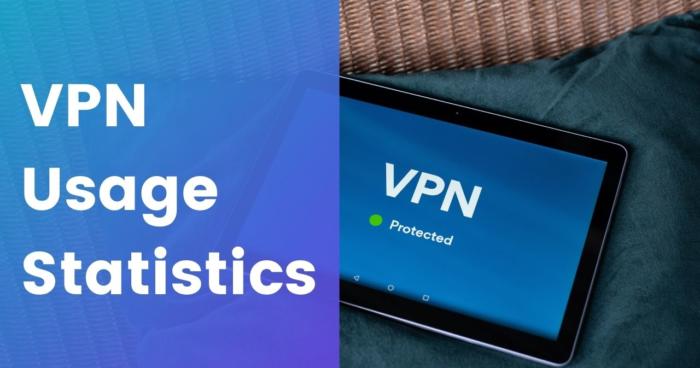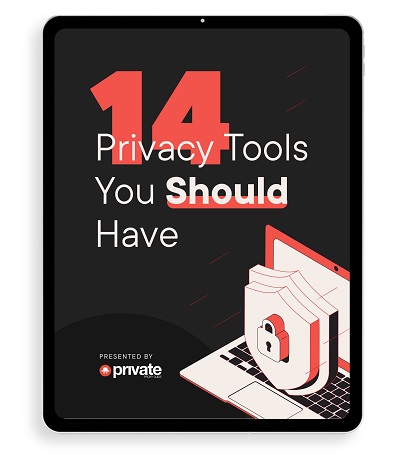Cybersecurity is a more serious concern now than it has ever been before. Hackers are siphoning information away, corporations are exploiting personal data, governments are intruding on your sensitive details, etc.
Using a VPN helps to protect you in an online world while giving you a medium to access content that lies beyond geographical restrictions. This isn’t a new concept, and the statistics below should give you an idea of whole VPNs factor into the lives of other internet users.
So, without further ado, here are some of the most interesting VPN usage statistics for 2025:
1. About 40% of VPN Users Use the Medium Almost Daily.
VPN usage rates paint a clear picture of how intertwined security is with many people’s normal internet usage. At least 70% of VPN users report using them no less than once weekly, while 40% report using their VPN client daily or every other day.
(Global Web Index)
2. VPN Use Is Primarily Geared Toward Entertainment.
While a VPN is a stellar privacy tool, only 31% of global VPN users reported anonymity as being their reason for using the service. This information, gathered from a Global Web Index publication, also indicated that 49% of persons said that accessing better entertainment motivated them.
(Global Web Index)
3. Postgraduates Are the Most Likely People to Use VPNs, While Those Schooled up to the High School Level Are Least Likely to Use Them.
Trend data observation indicates that university-educated users are more likely to use VPNs, as they have a greater motivation to find a broad spectrum of content online. Those schooled up to 16 years were found to be the least likely to browse behind the VPN.
(Global Web Index)
4. At Least 25% of Adult Internet Users Have Used a VPN.
Many persons believe a very small percentage of internet users take advantage of VPNs. A Global Web Index survey found that at least 25% of adults have used a VPN at least once in their lives.
(Global Web Index)
5. The Main Motivations for VPN Surround Privacy and Content Access.
Though there are other reasons for VPN use, content access and privacy make up much of the driving force behind getting a VPN setup. Less widespread uses include communicating with family and friends abroad and site access at work.
(Global Web Index)
6. Mobile VPN Usage Primarily Stems from Internet Users APAC, Latam, and MEA.
APAC mobile users account for 23% of mobile VPN use. Latam and MEA each account for 19%. This data, collected by Global Web Index, is consistent with the fact that these users spend the most time on their mobile devices.
(Global Web Index)
7. 41% of Chinese Users Are Using VPNs for Social Networking Reasons.
41% of the mobile VPN user base in China reported using them for social network access. Many platforms are blocked through China’s traditional ISP routes, which has caused these citizens to seek out an alternative.
(Global Web Index)
8. VPN Usage Saw a Huge Spike in Many Countries in March 2020.
In March 2020, there was a trend of a huge spike in VPN use over two weeks. For example, Italy saw a 160% increase weekly, the US saw a 124% increase weekly, and Spain saw a 58% increase in weekly usage.
(Statista)
9. Indonesia, Turkey, and Vietnam Have the Highest VPN Use As a Percentage of Their Total Internet Users.
In Indonesia and India, VPN users make up 38% of total internet users. This figure is 32% in Turkey. In most other countries around the world, there is a substantially lower percentage of VPN users than the total number of people browsing the internet nationally.
(Statista)
10. Men Are More Heavy VPN Users Than Women.
In 2018, Global Web Index did a survey to measure VPN usage. The study revealed that males, who accounted for 62% of all VPN users, were almost twice as likely to use a VPN as females, who accounted for 38%.
(Global Web Index)
11. While VPN Users Around the World Often Use Them for International TV, the Case is the Opposite in the United States.
While many global VPN users take advantage of the chance to watch international TV, a 2017 study indicated that only 7% of US-based users took the same action. While this may seem alarming at first, much of the international VPN user base is trying to access US-based content.
(Statista)
12. The VPN Market Was Worth $27.1 Billion in 2020 and Is Projected to Reach $35.73 Billion By 2025.
The global VPN market was worth $27.1 billion in 2020. The figure, which appreciates every year, is projected to be $31.1 billion in 2023 and $35.73 billion in 2023.
(Statista)
13. Most American Adults Were Unaware of The Way VPNs Minimize Risk in June 2016.
An alarming study taken on cybersecurity knowledge in 2016 revealed that only 13% of American adults knew that a VPN could minimize the risk of using unsecured Wi-Fi networks. 70% were not sure, while 16% thought the opposite was true.
(Statista)
14. In 2020, The 45 – 60 Year Old Age Bracket Was the Most Likely to Use a VPN.
In 2020, VPN usage was most likely within the 45 to 60-year-old age group, as only 25% of them reported not using a VPN. The 18 to 29-year-old age group was the closest, as 29% had the same sentiments.
(Security.Org)
15. VPN Usage in the US Implies That Higher Income Earners Are More Likely to Use a VPN.
There seems to be a relationship between income levels and the extent of VPN use. Only 21% of those earning above $150,000 annually reported not using a VPN. On the flip side, 36% of those making $0 to $49,9999 didn’t use one. Interestingly, 36% of the highest income earners expressed utilizing a VPN for business purposes only, while 48% of the lowest income earners used one for personal reasons only.
(Security.Org)
16. Most US VPN Users Use a Free VPN Service.
It’s no surprise that Internet users try to save on costs where they can. A total of 29% of US-based VPN users revealed that the service they use is free. For the paying customers, 26% revealed that they paid for it themselves, while 24% indicated that an organization covered the cost.
(Security.Org)
17. Australia, the UK, the US, and Germany Have Some of the Lowest VPN Usage Numbers.
Some of the most highly regarded countries have the lowest numbers of VPN users. A study by GeoSurf revealed that Germany, the US, The UK, and Australia had the least VPN consumption as a percentage of total internet users. The figures were 6%, 5%, 5%, and 4%, respectively.
(GeoSurf)
18. 2018 Holds the Distinction of Being the Year with the Fastest VPN User Growth.
Though the total number of VPN users continues to increase each year, no annual period saw faster growth than 2018. The one year period recorded an uptick of 165% in usage of the service.
(Statista)
19. About 17% of VPN Users Use the Service to Access a Tor Browser
According to GeoSurf, 17% of total VPN users require the service to access a Tor browser. This means that accessing discreet services and communicating on a private channel is very important to at least a minority of consumers.
(GeoSurf)
20. Just Over a Quarter of Internet Users Require VPN for their Jobs.
Many companies implement VPN channels to secure access to resources for staff members. A 2020 study revealed that 29% of internet users have a VPN-based work requirement.
(Security.Org)
21. Most VPN Users Use PCs to Access Content, But Mobile Devices Are Also Commonly Used.
According to a Global Web Index study, 72% of VPN users use a Windows or Mac computer to access their VPN. Surprisingly, mobile use is not far behind, as 69% of users report using an iOS or Android device.
(Global Web Index)
22. Both VPN and Non-VPN Users Have a Similar Level of Concern About How Companies Use Their Private Data
You may think that VPN users have a much higher level of concern about how their private data is being used by organizations than those who opt to browse the internet without one. However, while 64% of VPN users have this worry, an impressive 60% of non-VPN users are also concerned.
(Global Web Index)
23. Most People Who Use a VPN While Traveling Use It for Pleasure
While traveling, people use their VPN for various reasons, especially when it comes to accessing geographically restricted content. Most traveling VPN users (47%) indicate that they use it for pleasure, while a lesser percentage (36%) use it for business.
(VPNMentor)
24. Most People in the US and UK Look for Speed, Ease-of-use, and a Reliable Connection in a VPN.
Price, security features, server locations, etc., are just a few of the elements people consider before subscribing to a VPN service. The most popular considerations, however, are connection reliability, speed, and ease of use. 54% of VPN users in the US and UK report looking for all three of these.
(Surfshark)
25. Less Than Half of US and UK VPN Users Expect to Use Them Continuously
When asked how long they expect to continue using their VPN service, 44% of US and UK users plan to do so indefinitely. 26% are unsure, while the others only intend to use the service for anywhere between one month and two years.
(Global Web Index)
26. Netflix Is a Popular Source of VPN Traffic
About 30% of VPN users access Netflix just about monthly. Almost half of these persons (49%) are in Mexico or Canada.
(VPNMentor)
Frequently Asked Questions
1. How Does a VPN Work?
VPN is an acronym, which stands for Virtual Private Network. As the name implies, it allows you to use a segmented network connection as you browse the internet. In doing so, the VPN encrypts your internet traffic, which allows you to hide your online identity. This is useful in protecting you from tracking and enabling you to bypass geographical restrictions, where internet content is concerned.
2. Will I Get Into Legal Trouble Using a VPN?
There is no single answer to this question that can cover all contexts. If you are a resident of the United States, it is legal for you to use a VPN. This is the case in many other countries worldwide, which explains why their use is so widespread. The ability to encrypt traffic and hide your online identity may seem like a gray area, but a VPN is a privacy tool at its core.
Nevertheless, it would help if you referred to your local legislation to find out. There are countries, such as North Korea, the United Arab Emirates, Russia, and China, that have banned VPNs and engage in strict internet censorship. You are liable to face penalties in these locations unless you are a foreigner who is visiting. Even so, it’s in your best interest to turn your VPN off while in such territories.
3. Is My VPN Activity Logged?
VPN activity is not logged in the traditional sense, so people find them so attractive. Even when you use your web browser’s private browsing functionality, an ISP can still track what you do if you don’t have a VPN. Once the traffic is encrypted, however, only the VPN server’s address shows up when tracking activities are performed.
However, note that the VPN provider has access to your identity and can reveal it to government officials or the police if required. Thankfully, many VPN providers have a no-logging policy, which means they keep no records of your activities.
4. Are VPNs Expensive?
Some VPN’s are free, and the rest offer a subscription service, where you pay an agreed amount at given intervals. Typically, the larger the interval you choose, the lower the cumulative cost. For example, a VPN subscription can cost $12.50 if you subscribe to a monthly plan. The same provider may offer you an $8 monthly cost if you go for the yearly plan. Though it equates to $8 monthly, you are billed $96 yearly. The monthly plan would add up to $150 annually.
VPN costs vary, but about $5 to $13 monthly should be enough to get you connected with a quality service.
We earn commissions using affiliate links.


![Metaverse Statistics [year] Market, Trends, Usage & Growth Metaverse Statistics](https://www.privateproxyguide.com/wp-content/uploads/2022/06/Metaverse-Statistics-150x150.jpg)




![Password Statistics [year] – Trends, Facts & Data Insights Password Statistics](https://www.privateproxyguide.com/wp-content/uploads/2022/07/Password-Statistics-150x150.jpg)

![Best Firefox VPN Addon [year]: Fast & Secure VPN Extension Best Firefox VPN Addons](https://www.privateproxyguide.com/wp-content/uploads/2022/01/Best-Firefox-VPN-Addons-1-150x150.jpg)
![Best Cheap VPN [year] – Fast & Affordable VPN Servers Best Cheap VPN](https://www.privateproxyguide.com/wp-content/uploads/2022/05/Best-Cheap-VPN-150x150.jpg)
![5 Best VPN Providers ([year]) [PC, iOS, Android] VPN](https://www.privateproxyguide.com/wp-content/uploads/2021/03/vpn-150x150.jpg)
![Best VPN for Kodi [year] Firestick, Fire TV & Raspberry Pi Best VPNs for Kodi 2021 - To Avoid Buffering & Other Issues](https://www.privateproxyguide.com/wp-content/uploads/2018/05/kodi-launch-logo-150x150.jpg)
![CyberGhost VPN Review: Features, Pros & Cons Explained [year] cyberghost vpn](https://www.privateproxyguide.com/wp-content/uploads/2021/03/cyberghost-vpn-150x150.jpg)
![HideMyAss VPN Review [year] Features, Pros & Cons Explained HideMyAss VPN Review 2021](https://www.privateproxyguide.com/wp-content/uploads/2018/06/hide-my-ass-review-homepage-150x150.jpg)
![7 Best VPN for PS4 & PS5 [year]: Fast & Secure Gaming Best VPN for PS4 2021](https://www.privateproxyguide.com/wp-content/uploads/2018/07/Best-VPN-for-PS4-150x150.jpg)
![7 Best VPN for DraftKings [year]: Fast & Secure Access for Betting Best VPN for DraftKings](https://www.privateproxyguide.com/wp-content/uploads/2018/07/Best-VPN-for-DraftKings-150x150.jpg)